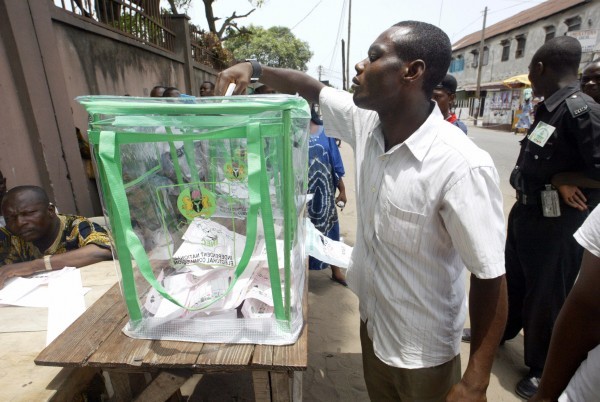It is no longer news that Nigerians have a huge distrust in the country’s electoral process. The former Independent National Electoral Commission (INEC) Chairman, Prof. Attahiru Jega in a statement before the 2015 general elections, listed insecurity, funding, apathetic and inactive citizenry among others as a few of the many challenges the election process in Nigeria faces. However, the citizens cannot be blamed. The inability of the country to run a transparent, free and fair election has made many Nigerians indifferent and inactive.
During the 2015 general elections, INEC, in an attempt to run a transparent election introduced the use of digital card readers and electronic fingerprint readers. But that was only possible because the Section 52 of the electoral act of 2010, which had prohibited the use of technology in voting was reformed in 2015. INEC chose the electronic readers as its first step in the introduction of technology into the voting process. Although that was advantageous to the election process, it had many flaws, which eventually led to the extension of the election dates.
Last year, the members of the House of Representatives tested the waters when they used electronic voting (e-voting) to confirm the nomination of two judges of the court of appeal as Supreme Court judges. This raised optimism in Nigerians as e-voting seemed like a step in the right direction. It is worth mentioning that the result from this nomination was inconclusive. If e-voting could not work in the confined space of the National Assembly, why do we think it would work in the whole nation? Many African countries have tried adopting one method of e-voting or the other and most have failed dramatically.
Although, no country in the world has gotten its electoral process right; even developed countries like the USA have had flaws in these processes, they have been able to adopt the use of various voting methods (manual and digital) to ensure transparency in their elections.
Is electronic voting the way to go?
On Monday, Nigeria’s first electronic voting machine was unveiled. This machine is reportedly powered by solar energy and enables cloud-based collation of results. However, before the Nigerian government begins to divert public funds on electronic voting experiments, they need to consider the merits and demerits of this innovation.
According to the Executive Vice Chairman of the National Agency for Science and Engineering Infrastructure (NASENI), the e-voting machine comes with features that ensure the prevention of ballot box snatching, multiple thumb printing, card reader failure and the alteration of data.
The fact that the machine is powered by solar energy is also an advantage considering the power situation in the country. It could also be a way to increase voter engagement and it is expected to be able to save time and save the government a lot of money.
While e-voting may seem like the final answer to the many problems of the Nigerian electoral process, it has its own disadvantages.
Glitches and hacking
Several developed countries around the world have adopted technology in their electoral processes. However, in certain countries such as Ireland and some states in the USA, e-voting has been discontinued, due to the fact that it is prone to glitches and hacking. Nigeria’s maiden e-voting machine has been said to have a cloud feature which enables data collated on the machine to be stored safely in the electoral body’s central electronic system and can be viewed online. Who says the system cannot be hacked and the figures manipulated? Knowing how peculiar Nigeria is, no one has to even hack into the system before hackers are blamed in order to cover up discrepancies.
Low broadband penetration
Nigeria is one of the countries with the lowest broadband penetration in the world. As of June 2016, the country recorded a poor 14% penetration. Many regions in the country cannot boast of a good network for phone calls, let alone broadband to access the internet. How does the government plan to use the e-voting machines in these areas? Would the government be able to improve the broadband penetration in time for the next general elections in 2019?
In 2013, the Nigerian National Broadband plan committee inaugurated by former president Goodluck Jonathan came up with a five-year strategy that would provide Nigerians with access to quality broadband between 2013 and 2018. It’s 2017 and the progress of broadband penetration in Nigeria is crawling at its best.
If the Nigerian government is serious about the use of e-voting machines, they should be tested first in smaller capacities such as primary elections alongside the manual voting system. The data collated can then be compared and improvements can be made.
If this is gotten right, the machines can further be tested in some regions of the country during bigger elections, supported with manual methods also before the digital system is adopted in every part of the country. Also, the populace needs to be educated on the use of these machines way before the elections. A step-by-step tutorial should be given to rural dwellers so that they are familiar with the process.
E-voting cannot solve problems such as ballot buying, intimidation of voters and post-election violence. Would the Nigerian government tackle these problems before it is introduced? These are factors to be considered before it is implemented in Nigeria.
Photo credit: Bayo Omoboriowo






